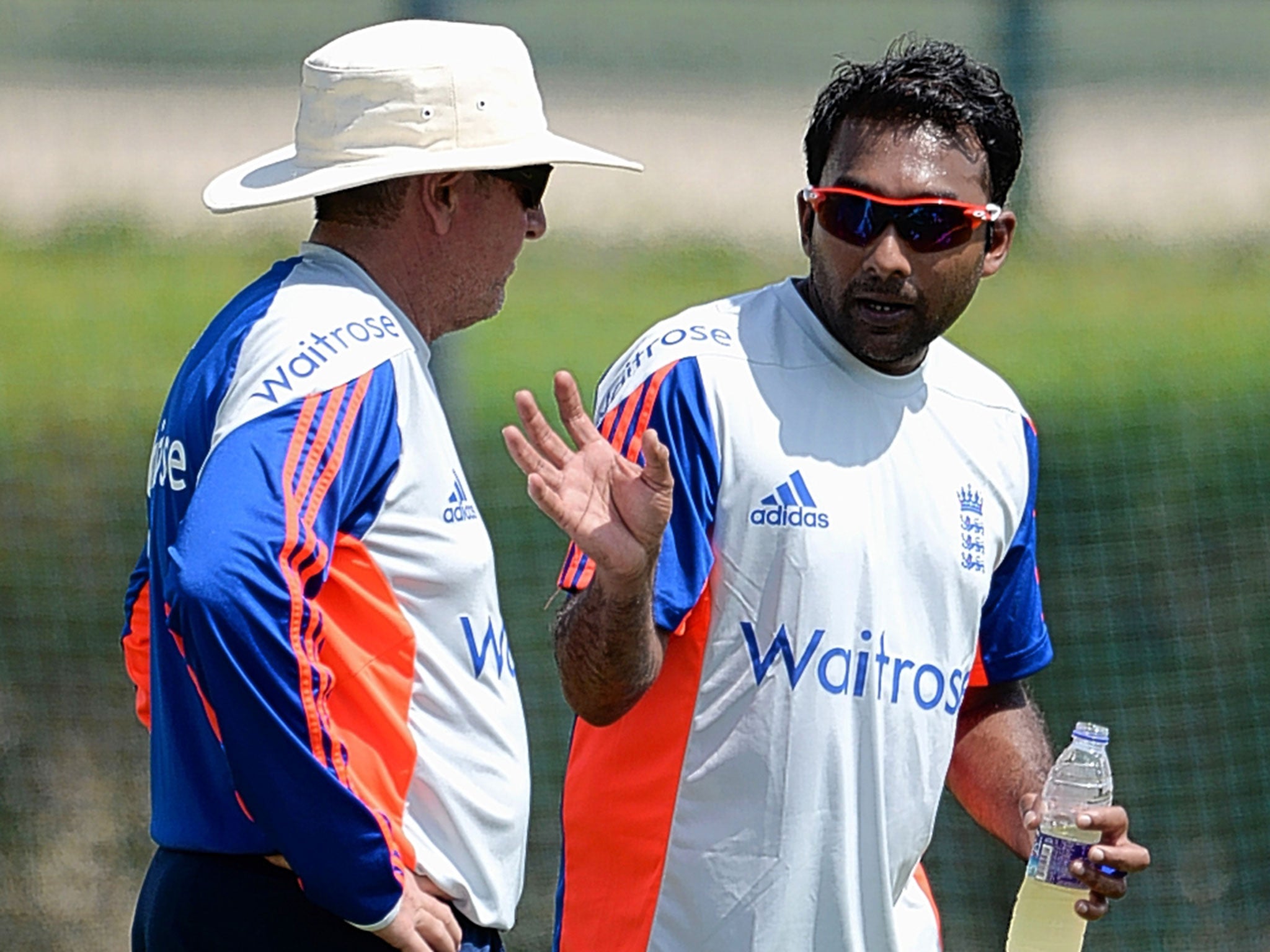England vs Pakistan: Mahela Jayawardene puts England on guard for slow pitches
Paul Farbrace said Jayawardene ‘has been outstanding’ in helping England prepare for the slow UAE pitches

It is generally recognised that winning Test series away from home has somehow become more difficult in our globalised world. If this is perverse, given that a couple of years back it was also agreed that pitches from one country to another had grown too similar, almost to the point of homogeneity, the main reason seems to be that visiting teams have too little time to prepare on alien surfaces in unfamiliar temperatures.
The usual benign response to this is that it is what it is and there is no alternative but to get on with it. Of course, there is a different option, which is that the relentless, random international schedule is amended. But everyone seems to have given up on that, so like a self-fulfilling prophecy, it is indeed what it is.
England will play three Test matches on this tour of the UAE, where Pakistan have lost none of the seven series they have played since they adopted the place reluctantly but gratefully as their home base five years ago.
The tourists’ preparation for these Tests is comprised of two two-day warm-up matches, which amounts to little more than glorified if serious middle practice.
When they came here almost four years ago as the No 1 Test side in the world rankings, England had two three-day matches before the serious business began, both of which counted as first-class and both of which they won, albeit without conviction.
However, they went on to be defeated 3-0 in the Test series, and were patently ill-equipped for what their opponents had in store for them at all the key moments.
With such previous in mind, it is difficult to be sanguine about the tourists’ prospects when the Test series starts all too soon on Tuesday in Abu Dhabi. They begin the second of their practice matches today in Sharjah, which is expected to follow the lines of the first with each side batting on one of the days.
England may decide to change their team to give each member of the party a chance of some time on the field. But that is fraught with risk since it threatens to leave certain members of their preferred team still shorter of authentic preparation.
The feeling is that England had, to all intents and purposes, alighted on their starting XI before setting foot on the plane last week at Heathrow. In this they would contend that they had little option, though five players might disagree.
In trying to compensate for a policy which has necessarily left a canyon full of stones unturned, England have been active in other areas. They have hired the expert advice of Mahela Jayawardene, the prodigious, recently retired Sri Lanka batsman.
“He’s been outstanding, he’s a top-quality bloke, he’s given to everybody,” said England’s assistant coach Paul Farbrace yesterday. “It’s not just been batters against spin. He’s just a good bloke, he’s shared every bit of knowledge that he’s got. He’s talked to slip fielders about where to stand, he’s talked about when the ball is reversing, how the Pakistani side look to play.”
However, it is Jayawardene’s knowledge of how to play spin on slow, turning pitches that England have truly sought. He has been there and he has done it. But if he can transfer that knowledge to England’s batsmen it would be like teaching the illiterate to read Sanskrit.
“The simple thing that he’s talked about is that, on slow pitches, the key is not to overhit it,” said Farbrace. “Rather than trying to hit the ball harder because the ball is not getting to you as easily as it might do at home, the key is to let the ball come a bit more, hitting more under your nose, actually looking to bunt the ball into gaps.
“If you see a long hop, the natural reaction is to pull it as hard as you can. On slow pitches you see the ball nicked and caught behind or caught slip, whatever. He’s talking about letting the ball come, hitting it as late as you can, guide it into gaps. You’re only going to get one [run] anyway.
“They are the very simple things that he’s talked about. And it is simple,” Farbrace added. “There’s nothing rocket science about what he’s talked about. He’s just offered some of his thoughts. He’s not saying, ‘Play the way I played’. He’s saying, ‘These are options to try’.”
Not rocket science but hardly elementary for England either. These are strange conditions for them. Runs have been scored in the UAE at 2.96 an over in the 18 Tests played here since November 2010, which compares with 3.38 in England, 3.42 in Australia and 3.19 in India since then. But that is partly made up for by the fact that 14 balls more an hour – 14 overs in a six-hour day – are bowled here than in England.
Hiding behind scoring rates will not do by itself, however. When New Zealand were the last visitors here a year ago, they drew the series by winning in Sharjah and they did that by scoring 690, rattling along at 4.8 runs an over.
Subscribe to Independent Premium to bookmark this article
Want to bookmark your favourite articles and stories to read or reference later? Start your Independent Premium subscription today.

Join our commenting forum
Join thought-provoking conversations, follow other Independent readers and see their replies